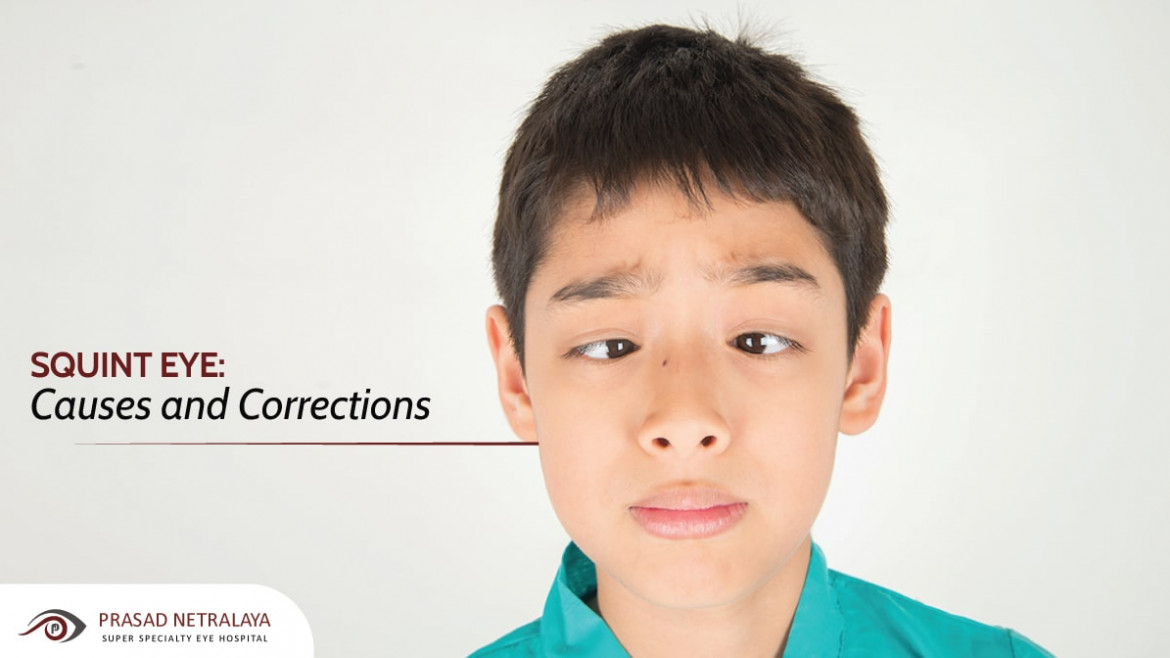Particularly common in children, squint eye or strabismus is a condition where the eyes look in different directions, focusing on different objects at the same time. While there are superstitions saying that this condition is lucky, people with squint eyes actually do have a problem — the eyes are misaligned in such a way that when the person looks straight ahead with one eye, the other eye could look inwards, outwards, upwards or downwards. Continue reading to know more about squint eye, its causes and corrections.
Table of Contents
What Causes Squint Eye?
Squint eye is caused due to nerve damage or problems in the eye muscles. When some muscles around the eye are weaker than others, they are unable to work together. As a result, one eye looks at one object, while the other eye turns in a different direction and looks at another object. The brain receives two different signals, one from each eye, and the message from the weaker eye is ignored. While a squint eye is usually present at birth, it can even develop later in life due to general health conditions or eye injuries.
Symptoms of Squint Eye
The most common signs of strabismus are:
- Eyes that look at different directions at the same time
- Eyes that don’t move together
- Squinting or closing one eye in bright sunlight
- Poor peripheral vision
- Poor depth perception
Some of the common risk factors for developing squint eye include –
- Family History – People with a family history of squint eye or those who have a parent or sibling with a squint eye are more likely to develop it.
- Refractive Error – People suffering from a significant amount of hyperopia (far-sightedness) are prone to squint eye because of the additional stress added to their eyes to see things clearly.
- Medical Conditions – People who have suffered from a stroke or have conditions such as Down Syndrome or Cerebral palsy are at a higher risk of developing a squint eye.
What are the different types of Squints?
Squints can be differentiated in terms of the direction in which the eye turns. Here are the 4 different kinds of squints –
- Esotropia – When the eye is turned towards the nose, it is referred to as an esotropia.
- Exotropia – When the eye turns outwards, it is called an exotropia.
- Hypertropia – When the eye is turned upwards, it is called hypertropia.
- Hypotropia – When the eye turns downwards, it is called hypotropia.
Squint Eye Treatment
With proper treatment, the risks of other eye complications such as amblyopia and lazy eye, that come from squint eyes, can be reduced. Treatments for squint eyes include:
- Glasses: In cases where underlying problems with vision are the cause of squint eye, glasses are your best option.
- Eye-patch: An eye patch is often used to correct a squint eye. Wearing it on the good eye can help ensure that the squint eye works better.
- Eye Exercises: Although exercises should not be considered as a substitute for medical treatment, there are many exercises that are often part of a squint eye correction treatment. Two common eye exercises include Pencil Pushups and Barrel Card.
- Pencil Pushups: Pencil pus ups are simple ocular workouts that make both the eyes focus on the same point. Hold a pencil at arm’s length and focus your gaze on it. Slowly move the pencil towards you, without losing focus as long as you can.
- Barrel Card: Draw three red barrels of progressive size on one side of a card. Do the same thing in green on the other side. Hold the card vertically against your nose, so that the largest barrel is the furthest away. Stare at the far barrel until it becomes a single image with both the colours and the other two barrel images have doubled. Maintain your focus for about five seconds. Then repeat with the middle and the smallest barrel images.
- Surgery: When none of the above treatment methods work, surgery is the last resort. A squint eye surgery can realign the eyes and restore binocular vision.
Are you suffering from squint eyes? Get your eyes checked and treated at Prasad Netralaya, Mangalore and Udupi’s most trusted Eye Care Hospital. Our experienced staff is here to make sure that you receive the quality ophthalmological care that you deserve. Call us at +91 9513596565 or book an appointment if you wish to visit in person.


